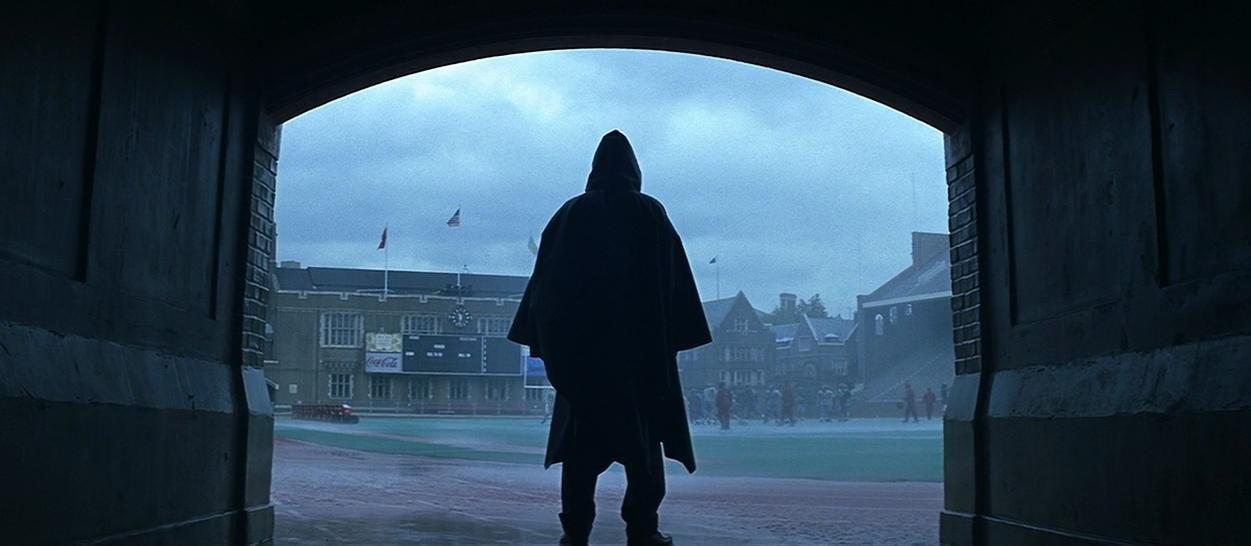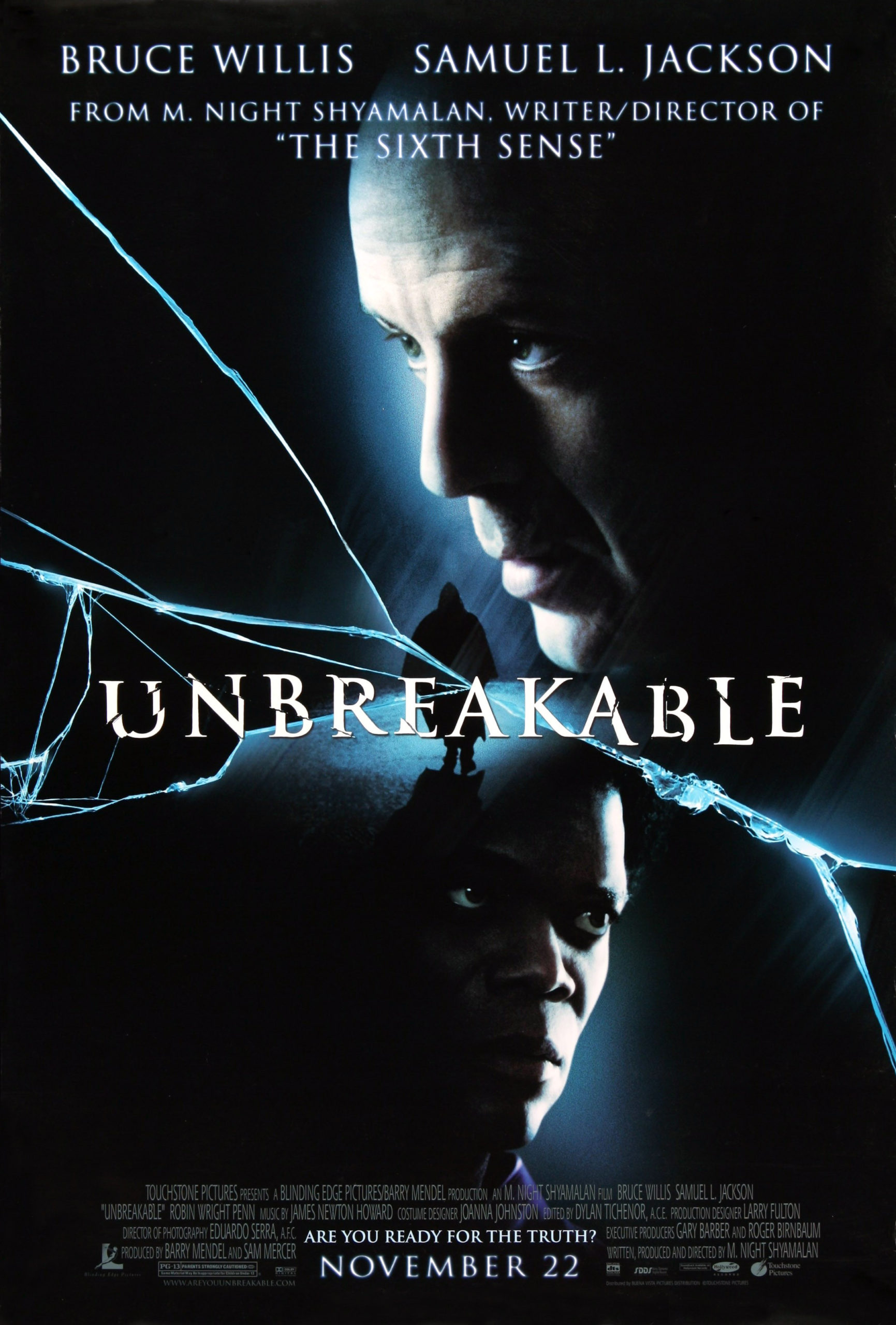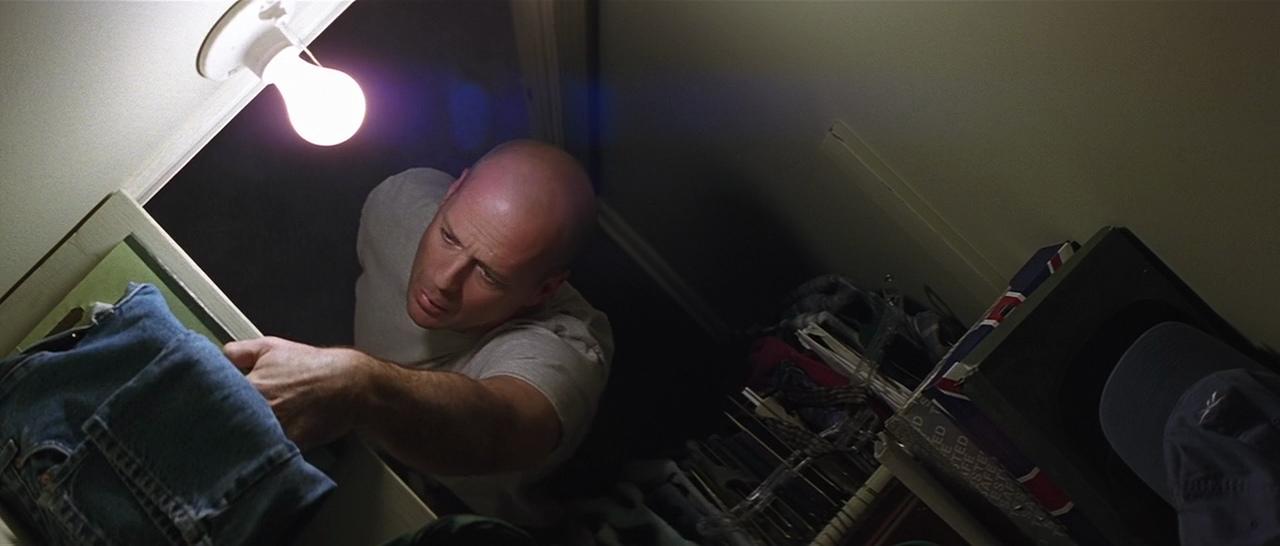

“Real life doesn’t fit into little boxes that were drawn for it.”
Though less than the sum of its parts, Unbreakable must be commended for its fidelity to the spirit of superhero comics, its visual storytelling, and its ahead-of-the-curve subversion of a genre that hadn’t yet come into its own.
Its conceit, elucidated in its middle portion by comic book connoisseur Mr. Glass (Samuel L. Jackson), is that comics are an ancient medium by which history and knowledge are passed down through generations. Well, it wasn’t always comics, per se. We used to have hieroglyphs and whatnot. But the method of conveying truth about our supernatural protectors via hand drawn images became perverted by commercialization—“jazzed up, made titillating, cartooned for the sale rack,” as Glass says—and our familiarity with real superheroes was lost.
Mr. Glass—real name Elijah Price—earned his nickname on account of his suffering from osteogenesis imperfecta, “brittle bone disease,” a malady that left him bedridden for a third of his life. During this time he studied comics and formed his hypothesis: that superheroes are real, if exaggerated by popular depictions. His intuition tells him that, if his health is so poor, certainly there must be a yin to his yang on the other end of the spectrum; a robust, physically durable fellow who doesn’t suffer from illness and is naturally impervious to physical harm. In order to flesh out his theory, he has regularly scoured news reports for signs of the miraculous for years. He finally finds a promising candidate in David Dunn (Bruce Willis), the only man to survive a horrendous train crash that killed everyone else on board. Not only did he survive, but he miraculously walked away from the accident without a scratch.
The seemingly linked pair are introduced when Glass leaves a note tucked beneath Dunn’s windshield wiper: “How many days of your life have you been sick?” It’s a question that seems innocuous enough on its surface but absurd in its implications. When the two meet, with Dunn’s young son Joseph (Spencer Treat Clark) in tow, the comic theorist presents his wild postulation and Dunn scoffs. But Glass is persistent. He shows up at the football stadium where Dunn works security and observes his subject’s protective instincts and extrasensory perception; he seeks treatment at the office where Dunn’s estranged wife (Robin Wright) works as a physical therapist and tries his theory on her. Most importantly, he convinces Joseph, who finally can’t stand his parents’ denial of reality any longer and pulls a gun on his own father, an intense episode that causes Dunn to earnestly confront the possibility that he’s been granted superhuman abilities.

Unbreakable is a low-key take on superheroes. It has a finale in which the guard-turned-vigilante takes down a single criminal (albeit one who is horrifically sadistic), but it prefers to hone in on small acts of everyday heroism, like reconciling a broken marriage or being a role model for your child or preventing the proliferation of drug addiction (the director has a little cameo as a dealer). There’s a refreshing slowness to the proceedings that serves multiple ends: it allows the magical/occult elements to settle in better than they do in faster-paced films; it provides narrative space for less flashy scenes like David and Audrey’s “first date”; and it offers the director the elbow room to craft visually compelling shots that mimic the panels of comic books and to try his hand at several artfully-arranged scenes. He also turns his camera upside down quite frequently.
Unfortunately, Shyamalan’s tendencies as a writer don’t always serve his story. He applies one of his patented twist endings, but, although unexpected, it doesn’t complement the rest of the film as well as those in his other films, nor does it tie up loose ends or encourage an immediate rewatch for deeper analysis. The screenplay doesn’t always transition gracefully as it moves between superhero origin story, family drama, and horror-tinged finale, even if each individual sequence is stellar.
Those criticisms aside, Unbreakable is still engaging and emotive, and an excellent showcase of Shyamalan’s brilliant simplicity as a visual storyteller.